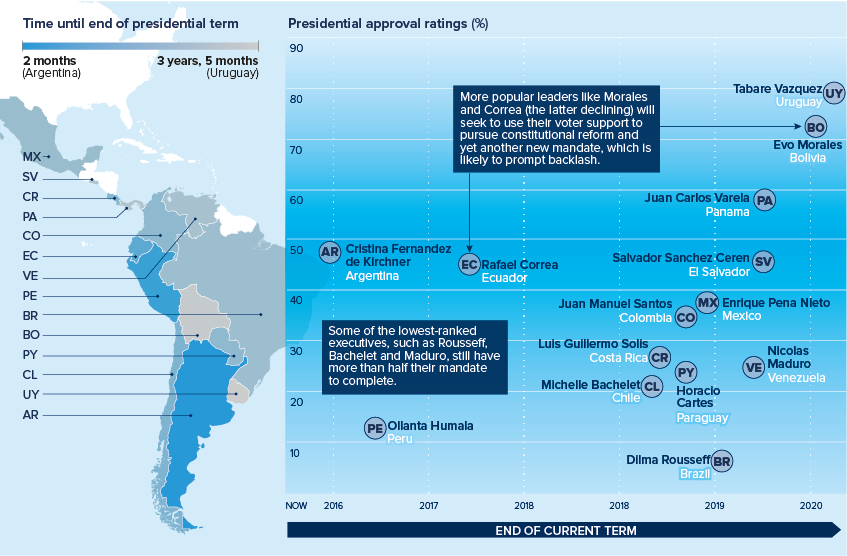Low approval can hobble Latin American presidents
Low approval ratings for many Latin American presidents highlight the risks associated with personalist government

Source: Oxford Analytica
Outlook
Presidents in all Latin American democracies are elected for fixed terms, and, in most countries, enjoy greater personal power vis-a-vis the legislative and judicial branches than counterparts elsewhere. This represents a threat to political stability. A sharp fall in popularity leaves them as lame ducks early in their term.
By contrast, high approval ratings have often prompted attempts to rewrite the constitution in order to maintain popular presidents in office beyond their constitutional term limits.
Impacts
- Argentina's Cristina Fernandez de Kirchner has regained some 20 percentage points near the end of her term -- but this is not the norm.
- In a context of economic downturn, the risk of rising protest and instability is considerable.
- However, greater ease in removing unpopular leaders could prompt rapid government turnover and more instability.